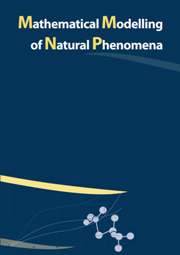Article contents
Homogeneous Cooling with Repulsive and Attractive Long-Range Potentials
Published online by Cambridge University Press: 18 July 2011
Abstract
The interplay between dissipation and long-range repulsive/attractive forces inhomogeneous, dilute, mono-disperse particle systems is studied. Thepseudo-Liouville operator formalism, originallyintroduced for hard-sphere interactions, is modified such that it provides very goodpredictions for systems with weak long-range forces at low densities, with the ratio ofpotential to fluctuation kinetic energy as control parameter. By numerical simulations,the theoretical results are generalized with empirical, density dependentcorrection-functions up to moderate densities.
The main result of this study on dissipative cooling is an analytical prediction for the reduced cooling rate due torepulsive forces and for the increased rate due to attractive forces. In the latter case,surprisingly, for intermediate densities, similar cooling behavior is observed as insystems without long-range interactions. In the attractive case, in general, dissipationleads to inhomogeneities earlier and faster than in the repulsive case.
Information
- Type
- Research Article
- Information
- Mathematical Modelling of Natural Phenomena , Volume 6 , Issue 4: Granular hydrodynamics , 2011 , pp. 118 - 150
- Copyright
- © EDP Sciences, 2011
References
- 10
- Cited by

